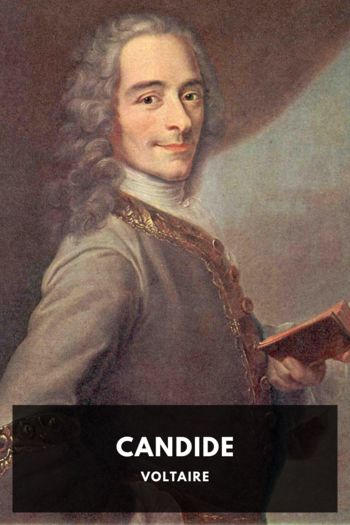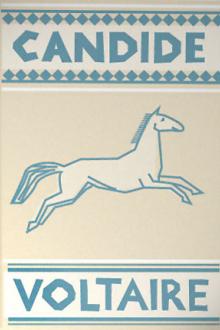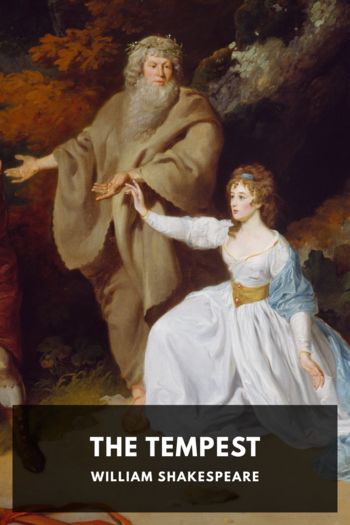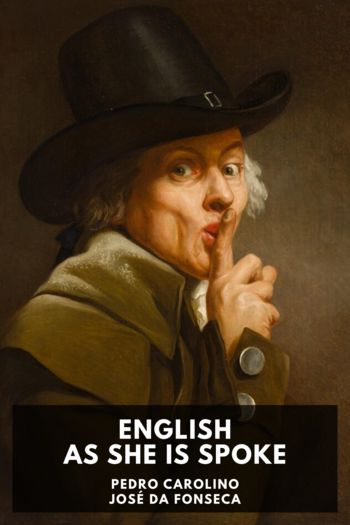Candide, Voltaire [best romantic novels in english .txt] 📗

- Author: Voltaire
Book online «Candide, Voltaire [best romantic novels in english .txt] 📗». Author Voltaire
Candide listened attentively and believed innocently; for he thought Miss Cunégonde extremely beautiful, though he never had the courage to tell her so. He concluded that after the happiness of being born of Baron of Thunder-ten-Tronckh, the second degree of happiness was to be Miss Cunégonde, the third that of seeing her every day, and the fourth that of hearing Master Pangloss, the greatest philosopher of the whole province, and consequently of the whole world.
One day Cunégonde, while walking near the castle, in a little wood which they called a park, saw between the bushes, Dr. Pangloss giving a lesson in experimental natural philosophy to her mother’s chambermaid, a little brown wench, very pretty and very docile. As Miss Cunégonde had a great disposition for the sciences, she breathlessly observed the repeated experiments of which she was a witness; she clearly perceived the force of the Doctor’s reasons, the effects, and the causes; she turned back greatly flurried, quite pensive, and filled with the desire to be learned; dreaming that she might well be a sufficient reason for young Candide, and he for her.
She met Candide on reaching the castle and blushed; Candide blushed also; she wished him good morrow in a faltering tone, and Candide spoke to her without knowing what he said. The next day after dinner, as they went from table, Cunégonde and Candide found themselves behind a screen; Cunégonde let fall her handkerchief, Candide picked it up, she took him innocently by the hand, the youth as innocently kissed the young lady’s hand with particular vivacity, sensibility, and grace; their lips met, their eyes sparkled, their knees trembled, their hands strayed. Baron Thunder-ten-Tronckh passed near the screen and beholding this cause and effect chased Candide from the castle with great kicks on the backside; Cunégonde fainted away; she was boxed on the ears by the Baroness, as soon as she came to herself; and all was consternation in this most magnificent and most agreeable of all possible castles.
II What Became of Candide Among the BulgariansCandide, driven from terrestrial paradise, walked a long while without knowing where, weeping, raising his eyes to heaven, turning them often towards the most magnificent of castles which imprisoned the purest of noble young ladies. He lay down to sleep without supper, in the middle of a field between two furrows. The snow fell in large flakes. Next day Candide, all benumbed, dragged himself towards the neighbouring town which was called Waldberghofftrarbk-dikdorff, having no money, dying of hunger and fatigue, he stopped sorrowfully at the door of an inn. Two men dressed in blue observed him.
“Comrade,” said one, “here is a well-built young fellow, and of proper height.”
They went up to Candide and very civilly invited him to dinner.
“Gentlemen,” replied Candide, with a most engaging modesty, “you do me great honour, but I have not wherewithal to pay my share.”
“Oh, sir,” said one of the blues to him, “people of your appearance and of your merit never pay anything: are you not five feet five inches high?”
“Yes, sir, that is my height,” answered he, making a low bow.
“Come, sir, seat yourself; not only will we pay your reckoning, but we will never suffer such a man as you to want money; men are only born to assist one another.”
“You are right,” said Candide; “this is what I was always taught by Mr. Pangloss, and I see plainly that all is for the best.”
They begged of him to accept a few crowns. He took them, and wished to give them his note; they refused; they seated themselves at table.
“Love you not deeply?”
“Oh yes,” answered he; “I deeply love Miss Cunégonde.”
“No,” said one of the gentlemen, “we ask you if you do not deeply love the King of the Bulgarians?”
“Not at all,” said he; “for I have never seen him.”
“What! he is the best of kings, and we must drink his health.”
“Oh! very willingly, gentlemen,” and he drank.
“That is enough,” they tell him. “Now you are the help, the support, the defender, the hero of the Bulgarians. Your fortune is made, and your glory is assured.”
Instantly they fettered him, and carried him away to the regiment. There he was made to wheel about to the right, and to the left, to draw his rammer, to return his rammer, to present, to fire, to march, and they gave him thirty blows with a cudgel. The next day he did his exercise a little less badly, and he received but twenty blows. The day following they gave him only ten, and he was regarded by his comrades as a prodigy.
Candide, all stupefied, could not yet very well realise how he was a hero. He resolved one fine day in spring to go for a walk, marching straight before him, believing that it was a privilege of the human as well as of the animal species to make use of their legs as they pleased. He had advanced two leagues when he was overtaken by four others, heroes of six feet, who bound him and carried him to a dungeon. He was asked which he would like the best, to be whipped six-and-thirty times through all the regiment, or to receive at once twelve balls of lead in his brain. He vainly said that human will is free, and that he chose neither the one nor the other. He was forced to make a choice; he determined, in virtue of that gift of God called liberty, to





Comments (0)